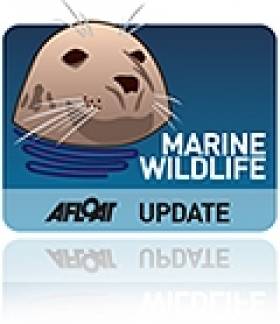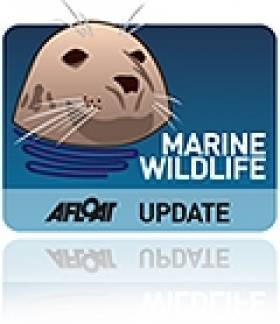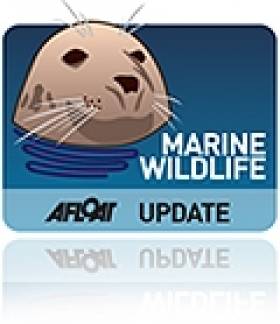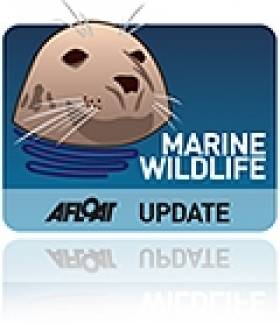Displaying items by tag: sightings
Waterford 'Best Place to Be' for Fin Whale Sightings
#MARINE WILDLIFE - Last Tuesday heralded an incredible eight whale sighting reports off the Waterford coast, according to the Irish Whale and Dolphin Group (IWDG).
Sightings co-ordinator Pádraig Whooley writes that most of the sightings have been confirmed to be fin whales, spotted close to the shore along a 20-mile stretch from Stradbally to Brownstone Head.
"For anyone interested in viewing the planet's second largest animal, clearly Co Waterford is still the place to be," he says.
But West Cork is also a hotspot for whale sightings, as BBC Autumnwatch's recent filming in the area with the IWDG illustrates.
It's expected that the large whale season will extend into February next year.
The IWDG has more on the story HERE.
On the Trail of Fin Whales in West Cork
Ireland's Wildlife's Calvin Jones recently joined the Irish Whale and Dolphin Group on the trail of fin whales and other marine wildlife off the West Cork coast.
Following reports of sightings just off the coastline, IWDG researchers set off with group members and a ranger from the National Parks and Wildlife Service on chartered vessel the Holly Joe to confirm for themselves.
"It took a while for us to spot the characteristic blow, gracefully arching back and almost ludicrously small dorsal fin of our first fin whale," says Jones, who also notes that the calm conditions made spotting their telltale blows more difficult due to the lack of spray.
Jones continues: "This day the water was so clear that at one point, looking down from the roof of the Holly Joe, I could clearly see the whole whale – from the tip of its head to the impressive tail flukes. It was bigger than the boat by some margin: an awe inspiring sight."
Ireland's Wildlife has more on the story HERE.
IWDG Confirms 175 Sightings in June
The Irish Whale and Dolphin Group (IWDG) has validated 175 large marine wildlife sighting records for June 2011.
The most commonly recorded species were bottlenose dolphins, accounting for 28 per cent of all sightings, followed by harbour porpoise (25%), minke whales (13.6%), common dolphins (9%) and basking sharks (5%).
Other sightings included Risso's dolphins, killer whales, fin whales, humpback whales and pilot whales.
"This is the second consecutive year that basking shark sightings have declined, with a 36 per cent drop in sightings on the same period in 2010," said IWDG sightings co-ordinator Pádraig Whooley.
The total numbers compare with 270 sightings in June 2010. "The 35 per cent drop in sightings reflects the vagaries of Irish summers," Whooley added.
He also noted that this year marks the first time that the biggest cluster of sightings was off the coast of Co Dublin.
The IWDG has more on the story HERE.
Basking Sharks Top Recent Marine Sightings
Basking sharks have dominated recent sightings of large marine wildlife, according to the Irish Whale and Dolphin Group (IWDG).
The largest shark species in Irish waters accounted for a whopping 43% of sightings submitted to the IWDG's ISCOPE database between 22 April and 1 May.
Other marine species spotted include minke whales (14%), bottlenose dolphins (10%) and sperm whales (2.5%).
April's unseasonably warm weather and calmer seas brought more people out to the water, which may account for this rise in figures.
Ireland's Wildlife has more on the story HERE.



























































